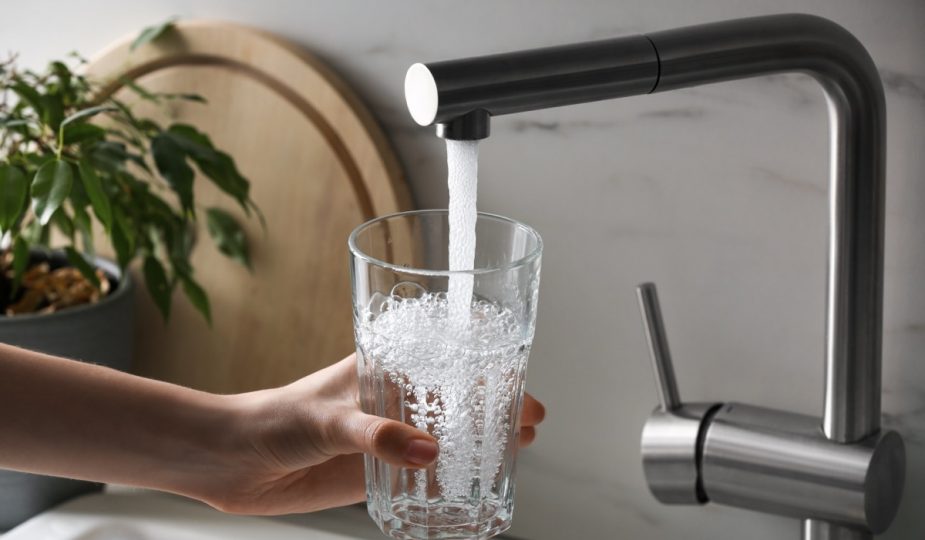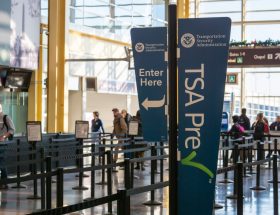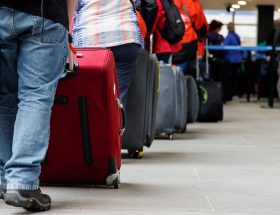It isn’t unusual to get sick once you journey—in any case, in exposing your self to new locations and experiences, you are additionally exposing your self to some unfamiliar germs. Ingesting contaminated water is likely one of the quickest methods to wind up feeling beneath the climate, and in lots of locations all over the world (components of the U.S. included) you will get that contaminated water straight from the faucet.
That is why, in the event you’re hoping to keep away from severe gastrointestinal signs in your subsequent trip, it is best to learn up on the meals and water security pointers to your particular vacation spot earlier than packing your luggage. Within the meantime, learn on to learn how the Facilities for Illness Management and Prevention (CDC) breaks down the areas wherein faucet water is and is not thought-about protected to drink.
RELATED: TSA Recommends 10 Issues to Do Earlier than Flying in New Winter Warning.
It’s best to keep away from consuming faucet water in most nations all over the world.
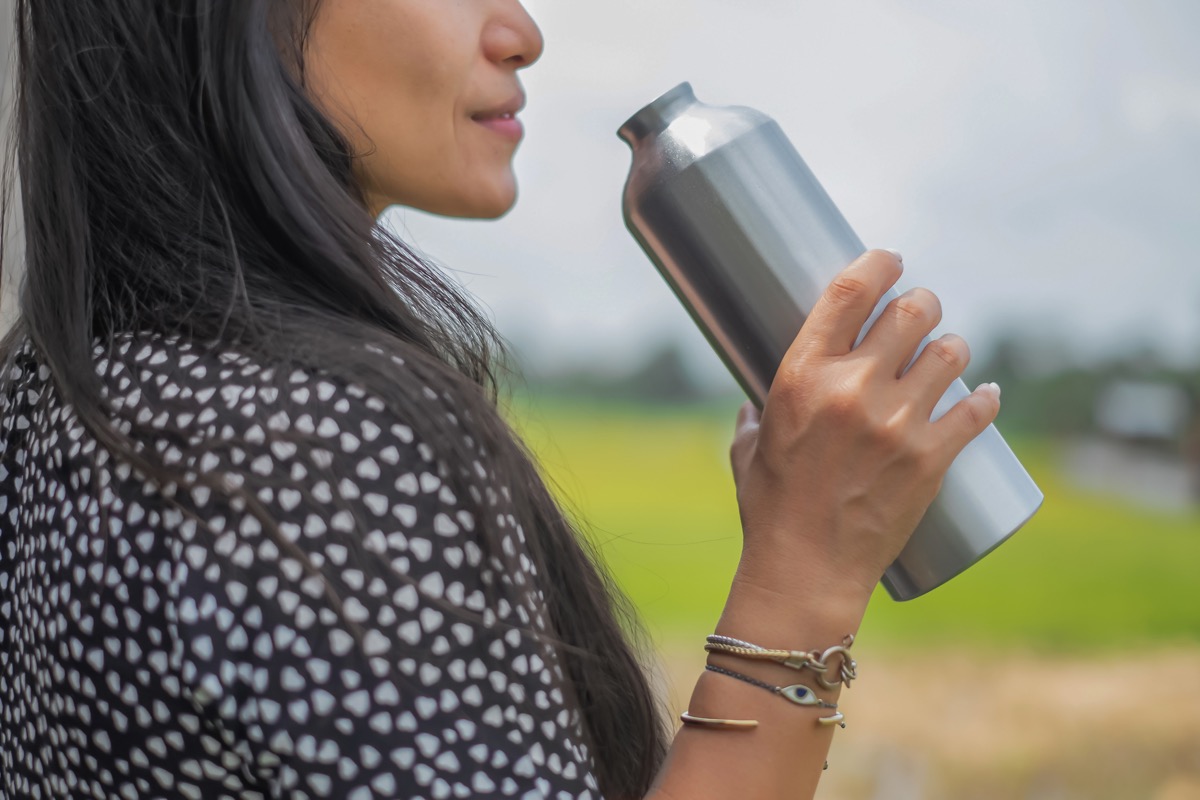
You is perhaps shocked to be taught that once you journey, you must keep away from consuming faucet water within the overwhelming majority of locations—at the very least in line with a latest infographic made by digg, primarily based on CDC advisories and Yale’s Environmental Efficiency Index, “which charges and screens world water high quality.”
Nevertheless, as an article in Globehunters beforehand defined, this does not essentially imply that the water is “unsafe or polluted, simply that as a vacationer, your physique is not going to be used to water in that space.”
So few nations have been spared from warning, it is simpler to record the nations wherein you can drink the water than those the place you’ll be able to’t, primarily based on the CDC’s suggestions.
America, Canada, a lot of Western Europe, Australia, and New Zealand are all thought-about protected locations to drink the faucet water in the event you’re coming from the U.S.
Nevertheless, the infographic implies that vacationers ought to keep away from faucet water all through all of Asia besides Japan and South Korea, all of South America in addition to Chile, and all of Central America besides Costa Rica. Equally, many of the Center East—in addition to Bahrain, United Arab Emirates, and Saudi Arabia—got here with water warnings, as did the whole continent of Africa.
Any time you propose a visit, it is a good suggestion to verify the suggestions to your particular journey vacation spot. Nevertheless, even when water is taken into account unsafe to drink immediately from the faucet, you should still be capable of drink it if it has been correctly handled.
“In most growing nations, you must keep away from consuming faucet water (and fountain drinks blended with faucet water) until you understand that faucet water has been boiled, filtered, or chemically handled with chlorine or iodine to disinfect it,” writes Harvard Well being Publishing.
RELATED: This Easy Hack to Unlock Lodge Safes Is Why You Ought to “By no means Belief” Them.
That is the most secure approach to keep hydrated whereas touring.
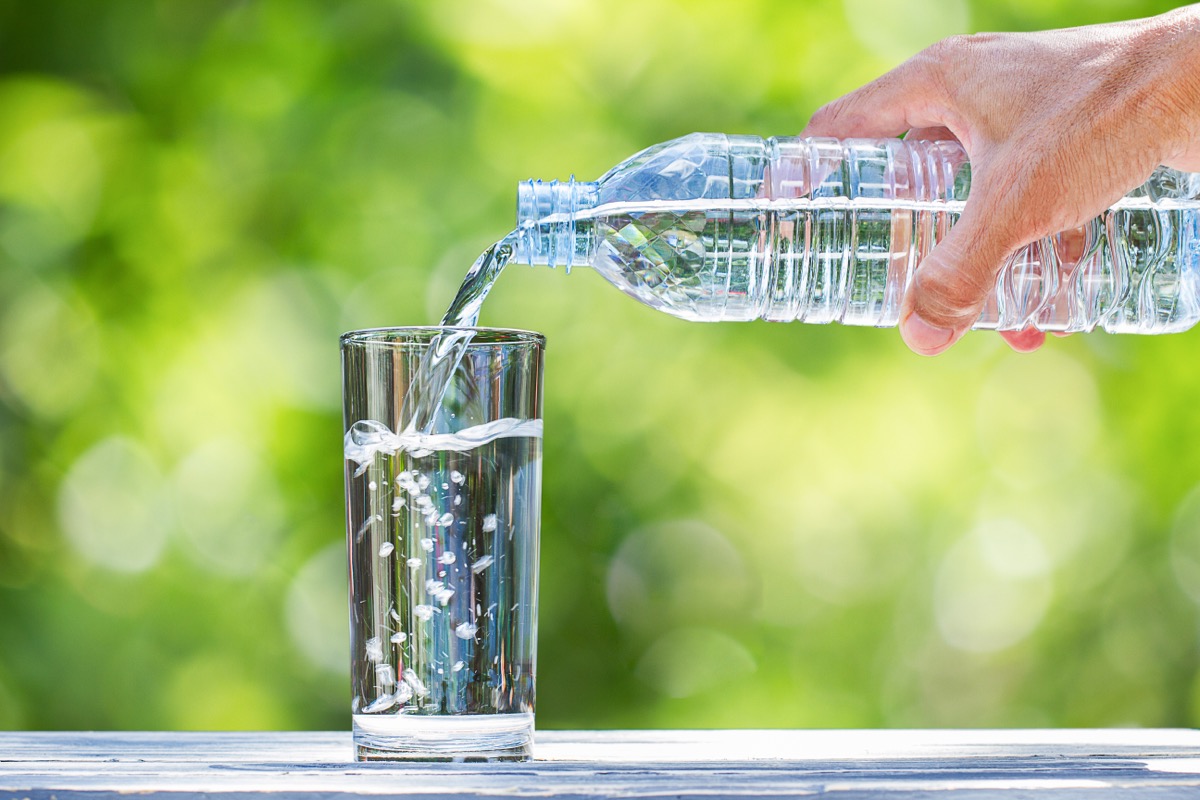
Sticking to pre-packaged drinks is your most secure guess for stopping a serious well being misstep whereas touring overseas.
“Sealed drinks, together with water, juice, and soda, are normally protected,” word the Harvard specialists. “Carbonated drinks are most secure as a result of the presence of bubbles point out that the bottle or can has been correctly sealed.”
Do not forget—in the event you pour a bottled beverage over ice, you should still be at heightened threat. “Ice is normally created from faucet water and needs to be prevented in all drinks,” say the Harvard specialists. “Even in blended drinks, the alcohol content material might not be excessive sufficient to kill the micro organism within the ice; order these drinks neat or straight up slightly than on the rocks.”
Additionally they recommend utilizing bottled water to brush your tooth in areas the place the faucet water is deemed unsafe.
For extra journey information despatched on to your inbox, join our day by day publication.
